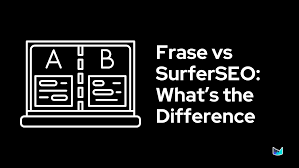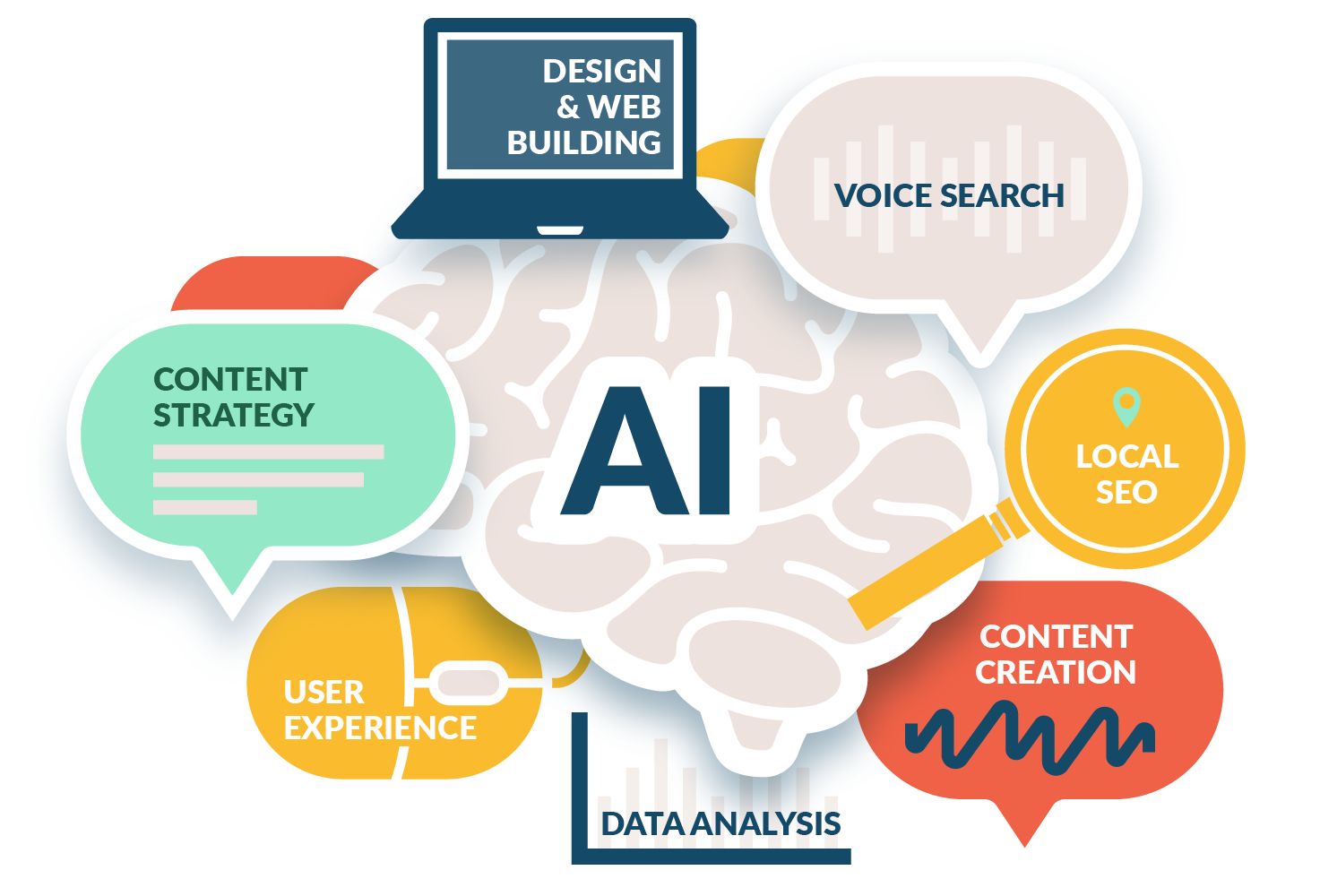AI Overviews and the Changing SERP Landscape
Google’s search results pages look nothing like they did a year ago. The classic list of blue links is changing faster into AI-generated content. This new approach changes how users find information and how websites show up in searches.What are AI Overviews?
AI Overviews are AI-generated summaries that show up right at the top of Google search results. They’re different from traditional featured snippets that pull content from just one website. These overviews blend information from multiple sources to give complete answers right on the search results page. Google launched this as Search Generative Experience in May 2023 and called it AI Overviews in May 2024. The feature now shows up in more than 47% of searches, mostly when people look for information. Google’s numbers show AI Overviews have reached more than 1 billion people worldwide. Each summary uses about 156 words and takes up roughly 820 pixels on your screen. Users who click to see more will find links to about 5.4 outside sources. Google says people are happier with their search results because they can ask longer and more complex questions. AI Overviews stand out from chatbots because they work with Google’s main ranking systems. Google explains that “They’re not simply generating an output based on training data” but instead “carry out traditional ‘search’ tasks like identifying relevant, high-quality results”.How they affect click-through rates
The numbers paint a worrying picture for website owners. Studies show AI Overviews cut down organic click-through rates by a lot:- Ahrefs found that AI Overviews cut CTRs by 34.5% for top-ranking pages compared to searches without them
- Amsive’s research showed CTRs dropped 15.49% across industries, with some cases losing up to 37.04% when featured snippets were also there
- SparkToro found that more than 58% of Google searches now get zero clicks
Impact on traditional SEO strategies
AI Overviews make us think over our SEO strategies completely. The old goal was to rank high in search results to get traffic. Now, you want to get mentioned in AI-generated summaries. This marks a fundamental change from getting visitors to getting citations. An expert points out that “Your content must be designed to be referenced, not just read”. Keywords still matter but now you need to match how people actually talk. Users ask questions in a conversational way instead of typing keywords. Your content should give direct answers to these questions. AI Overviews prefer content that is:- Well-laid-out with clear headers and FAQ formatting
- Authoritative with strong E-E-A-T signals (Experience, Expertise, Authoritativeness, Trustworthiness)
- Backed by quality backlinks from trusted websites
- Hosted in topic clusters that show complete knowledge
The Rise of LLMs as Search Engines
A whole new category of search has exploded in popularity beyond Google’s reach. Large Language Models (LLMs) do more than just improve traditional search-they’ve become complete alternatives.ChatGPT, Perplexity, and Gemini as search tools
The search landscape looks completely different since ChatGPT arrived in late 2022. OpenAI’s chatbot gained 100 million active users in just 8 months and now has over 200 million weekly active users worldwide. These numbers show how people have radically changed the way they look for information online. Perplexity AI stands out by connecting traditional search with AI conversation. The platform combines up-to-the-minute internet access with automatic citations, which are a great way to get insights for researchers and students. Yes, it is worth noting that Perplexity delivers faster results in direct comparisons-sometimes in just two minutes-and does better at web searches. Google’s Gemini (previously Bard) makes use of information from the company’s huge data repositories and services. The company launched “AI Mode” powered by Gemini 2.5, which uses “query fan-out” technology to break questions into subtopics and runs multiple queries at once. Power users can now do deeper research than traditional search allows. Anthropic’s Claude and Microsoft’s Bing AI (powered by OpenAI technology) round out the major players. Each brings its own approach to AI-assisted search, giving users choices beyond Google’s longtime monopoly.Why users are changing from Google
People move toward LLM-based search because these tools offer several key benefits over traditional search engines:- Natural conversations: LLMs let you have back-and-forth conversations instead of single queries, which creates an interactive experience.
- Direct answers: Users get complete, combined answers without scrolling through multiple websites.
- Complex query handling: LLMs can understand layered questions that would need several separate searches otherwise.
- Personalization: These models shape their responses based on your conversation history and context.
How LLMs deliver answers differently
LLMs and traditional search engines differ fundamentally in how they find and present information: Information processing: Google and other search engines match keywords and rank web pages, but LLMs understand natural language meaning. They figure out what users want rather than just matching words. Answer generation: Search engines give you links with snippets, while LLMs create original, conversational responses. They take information from multiple sources and combine it into clear, direct answers-so you don’t need multiple browser tabs. Contextual awareness: LLMs remember context throughout conversations, but traditional search treats each query as new. You can ask follow-up questions without explaining everything again. Accuracy challenges: Despite these advantages, AI search tools have accuracy issues. The Tow Center for Digital Journalism found AI models gave wrong answers to more than 60% of queries. Perplexity did best but still had a 37% error rate. SEO professionals face both challenges and opportunities. Content needs optimization for traditional search engines and LLM citation. One expert puts it simply: “Your content must be designed to be referenced, not just read.” Brands need ways to appear in AI-generated responses even as direct traffic drops. Search will evolve with traditional engines and LLM-powered tools working side by side, each with its own strengths and limits. Smart SEO strategies must work with both systems at once.How AI is Reshaping SEO Workflows
AI has become the life-blood of modern SEO professionals’ daily operations. AI-powered tools handle repetitive tasks, and SEO workflows are becoming more efficient than ever.AI for keyword research and content planning
The perfect keywords once required hours of spreadsheet analysis. Today, AI algorithms analyze massive amounts of data in seconds and spot patterns humans might miss. RankBot can organize keywords into meaningful clusters based on user intent to create a content creation roadmap. “Machine learning empowers algorithms to learn from data and improve their performance over time,” notes SEO Leverage. These tools identify:- High-volume keywords with low competition
- Emerging search trends before they peak
- Long-tail phrases with high conversion potential
- Semantic relationships between topics
Automation in content creation
Google states it clearly: “Our focus on the quality of content, rather than how content is produced, is a useful guide”. This perspective opens doors to thoughtful AI implementation in content workflows. AI writing assistants cut content creation time by 50-90%. The typical process starts with AI generating a draft outline based on target keywords. You can modify this outline before creating a full article. AI does more than first drafts. Semrush’s Writing Assistant reviews content for SEO alignment, readability, and originality as you write. It offers real-time improvements to help maintain quality while scaling production. AI shines with repetitive elements like meta descriptions. Typeface’s “SEO meta tags” template generates these critical elements based on your content to improve efficiency for websites with hundreds of pages. All the same, human oversight matters. Conductor points out that “AI sometimes has ‘hallucinations’ and provides either misleading or outright incorrect information”. Human experts must verify facts and add the experience signals Google values.AI tools for technical SEO and audits
Technical SEO involves finding issues across large websites. AI tools now automate this process and quickly spot problems that would take hours to find manually. Alli AI shows this progress by fixing issues automatically, not just finding them. “Once issues are detected, Alli AI gives targeted recommendations for each error, which you can approve individually or in bulk”. The tool fixes problems like missing canonical tags, image alt text, and meta descriptions automatically. AI-powered tools now perform advanced functions like:- Generating schema markup automatically
- Optimizing internal linking structures
- Monitoring page speed and suggesting improvements
- Detecting anomalies in SEO performance
- Identifying toxic backlinks and new opportunities
Trust, Misinformation, and the Role of E-E-A-T
AI’s integration into search algorithms raises a crucial question: can we trust what these systems tell us?Concerns around AI hallucinations
AI hallucinations create major hurdles for SEO’s future. These systems generate false or misleading information and present it as fact. Studies paint a concerning picture – chatbots hallucinate up to 27% of the time. Factual errors appear in 46% of generated texts. This creates serious problems for search applications. Tests on newer AI systems revealed hallucination rates reaching 79%. OpenAI’s most powerful system, o3, had a 33% hallucination rate when answering questions about public figures. This rate doubled compared to their previous system. “Vegetative electron microscopy,” a completely made-up phrase, appears in numerous research papers because it became part of AI training data. Academic librarians now spend more time verifying AI-generated references. This matters for SEO because users become skeptical of all search results when they lose trust in AI-generated content. A Columbia Journalism Review study showed AI search tools gave wrong answers more than 60% of the time. These tools rarely admitted uncertainty.Importance of source transparency
Trust in AI depends on transparency as its life-blood. Google’s systems now emphasize reliability signals more heavily for health, finance, and civic information topics. Google wants content creators to disclose AI use with appropriate bylines. This helps users decide whether to trust information. Transparency means more than just saying “AI-assisted.” Content needs clear sourcing, proof of expertise, and background details about authors or sites. The World Economic Forum sees misinformation and disinformation as serious global risks. A TrustRadius study revealed that 72% of B2B buyers see AI Overviews during research. Yet 90% still verify information by checking cited sources. This shows how citations shape trust. Websites struggle to gain visibility in AI search results without transparency. One expert said it best: “If nobody took the time to write this, why should anybody take the time to read it?”.Building authority with expert content
Google’s quality guidelines use E-E-A-T (Experience, Expertise, Authoritativeness, Trustworthiness) to evaluate content quality. Google added “Experience” in 2022 to stress the value of ground knowledge. Your content must show these qualities in the AI age:- Real experiences: Case studies, personal stories, or data analysis that only experts can provide
- Credible links: Connections to trusted websites that link both to and from your site
- Contemporary data: Up-to-date research, which AI-driven search ranks highly
- Author bios: Names, professional credentials, and links to active social media pages
Brand Visibility in a Fragmented Search Ecosystem
The digital world has split into multiple ways people find information. This radical change affects how brands must think about their visibility. People now divide their attention between traditional search engines, AI chatbots, and social media. This creates new challenges and opportunities.Why brand mentions matter more than ever
A brand’s digital presence goes way beyond the reach and influence of website traffic. Gartner projects brands could see a 50% or greater decline in organic traffic by 2028 as consumers move away from traditional search. These dramatic changes need new ways to measure success. About 80% of consumers rely on AI-written summaries for at least 40% of their searches. Users who find you through an LLM and visit later show up as direct traffic or branded search. The AI mention gets zero attribution in this process. The numbers tell a compelling story: AI search visitors are 4.4x more valuable than traditional organic search visitors. This happens because AI pre-qualifies users and sends higher-intent traffic to your site.Optimizing for AI citations and LLM visibility
AI systems cite content differently than traditional SEO rules. Almost 90% of ChatGPT’s citations come from search results ranking in positions 21+ – not the top 5 rankings everyone fights for. You might optimize for position #1, but AI tools look at pages 3, 5, and 10 for answers. To boost your citation rate:- Build content on sites LLMs often reference (Quora and Reddit are the most commonly cited websites in Google AI Overviews)
- Create factual, well-laid-out content with proper attribution
- Focus on server-side rendering-LLMs learn from raw HTML, not JavaScript-rendered content
- Develop truly helpful content about specific topics
Cross-platform content strategies
A unified approach across all discovery channels leads to success. This means creating content that boosts visibility on:- Indexable web content (for Google and Bing)
- Structured data and mentions (for LLMs)
- Short-form social content (for TikTok and Reels)
Predictions for the Future of SEO with AI
The search landscape will change dramatically by 2026. Today’s SEO strategies might look outdated compared to what’s coming. Evidence-based predictions point to radical changes that will make everyone adapt or disappear from the digital world.Search behavior in 2026 and beyond
Google’s dominance shows cracks already. Google’s market share fell below 90% for the first time since 2015. This signals the start of a major change, not just a temporary dip. Two-thirds of consumers think AI will completely replace traditional search within five years. The reality proves more complex. People don’t replace one tool with another – they fragment their search habits and use different tools for different needs. Search will become highly contextual by 2026. Studies show 71.5% of Americans use AI tools among traditional search options. Different platforms serve specific purposes:- Traditional search engines for general information (79.8% preference)
- AI tools for detailed explanations and comparisons
- E-commerce platforms for direct product searches
- Social media for local businesses and entertainment
AI’s role in personalization and user experience
Personalization will become essential rather than optional. AI-powered personalization will create individual-specific experiences based on live behavior by 2026. Generic content won’t match experiences that adapt instantly. Anticipatory design predicts what users need before they ask, becoming the new normal. This transformation gains momentum as 92% of businesses utilize AI-driven personalization to propel development. Users receive perfectly matched content and recommendations without searching through irrelevant information.Will AI replace traditional SEO?
The short answer: no. The detailed answer: it already alters the map of what SEO means. “AI isn’t here to replace traditional SEO; it’s here to boost it”. About 86% of SEO professionals use AI in their workflows, saving 12.5 hours weekly. SEO itself lives on, but outdated approaches die. The 2015 version of SEO-climbing a list of blue links-fades away. A new discipline emerges that focuses on:- Optimizing for AI citations rather than just clicks
- Creating content with genuine expertise that AI can reference
- Developing cross-platform visibility strategies




Alyssa Cortez
The bit about AI helping Google better evaluate search satisfaction really caught my eye. With interaction signals becoming more predictive, are you seeing changes in how long-form content vs. concise formats are performing post-2024 updates? We’ve seen our bounce rates drop 12% on pages that lean into answer-first structures, but time on page hasn’t shifted much. Curious if Google’s weighting actual dwell time less than task completion signals now.
Nick Mikhalenkov
Great observation. Google’s latest documentation suggests task completion signals like click depth, SERP return behavior, and interaction type are outweighing pure dwell time. Answer – first formats match that shift, users get what they need fast. We’ve seen similar results: bounce rates down, but engagement static. TL;DR – optimize for resolution, not just retention.